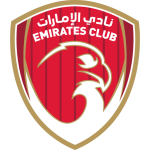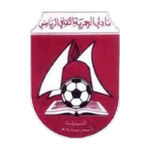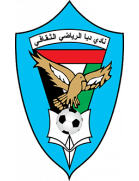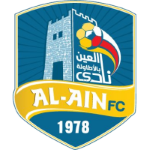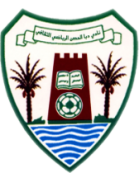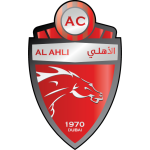United Arab Emirates (League) - AI Football Predictions Online
| AI | ||
|---|---|---|
 Division 1 Division 1 | ||
| 2025-04-19 09:55 |
| |
| 2025-04-19 09:55 |
| |
| 2025-04-19 10:00 |
| |
| 2025-04-19 11:15 |
| |
| 2025-04-20 09:55 |
| |
| 2025-04-20 09:55 |
| |
| 2025-04-20 09:55 |
| |
| 2025-04-26 09:55 |
| |
| 2025-04-26 09:55 |
| |
| 2025-04-26 09:55 |
| |
| 2025-04-27 09:55 |
| |
| 2025-04-27 09:55 |
| |
| 2025-04-27 09:55 |
| |
 Arabian Gulf League Arabian Gulf League | ||
| 2025-04-22 09:55 |
| |
| 2025-04-22 09:55 |
| |
| 2025-04-22 12:45 |
| |
| 2025-04-22 12:45 |
| |
| 2025-04-23 09:55 |
| |
| 2025-04-23 09:55 |
| |
| 2025-04-23 12:45 |
| |
| 2025-04-27 10:00 |
| |
| 2025-04-27 12:45 |
| |
| 2025-05-01 12:45 |
| |
 Reserve League Reserve League | ||
| 2025-04-23 09:55 |
| |
| 2025-04-23 09:55 |
| |
| 2025-04-23 09:55 |
| |
| 2025-04-23 09:55 |
| |
| 2025-04-24 09:55 |
| |
| 2025-04-24 09:55 |
| |
| 2025-04-24 09:55 |
| |
| 2025-04-28 10:00 |
| |
| 2025-04-28 10:00 |
| |
Football in the United Arab Emirates: A Cultural and Sporting Phenomenon
The United Arab Emirates (UAE) is a nation that has rapidly evolved into a footballing hub in the Middle East. With its wealth, ambition, and strategic investments in sports, the UAE has transformed its football scene, attracting international talent and developing local players. The passion for the game runs deep, with a fervent following that spans across its diverse population, showcasing a blend of cultures and nationalities united by the love of football.
The Evolution of Football in the UAE
Football was introduced to the UAE in the early 20th century, primarily through British influence. The sport gradually gained popularity, leading to the establishment of the first football clubs in the 1960s. The UAE Football Association was founded in 1971, marking a significant step in organizing the sport at a national level. The creation of the UAE Pro League in 2008 represented a pivotal moment in the country's footballing journey, offering a structured and professional framework for clubs to thrive.
Today, the UAE Pro League is a testament to the country's commitment to elevating its football standards. Renowned clubs like Al Ain, Al Ahli, and Al Jazira have not only dominated domestic competitions but have also made their mark in regional tournaments such as the AFC Champions League. The league attracts top talent from around the globe, with players from Europe, Africa, and South America bringing their skills and experience to the pitch. This influx of talent has raised the level of competition and provided local players with invaluable exposure.
Iconic Clubs and Rivalries
In the UAE, club football is more than just a sport; it is a way of life. The rivalry between Al Ain and Al Ahli is one of the most intense in the region, often referred to as the "El Clasico of the Emirates." Matches between these two powerhouses draw massive crowds and create an electric atmosphere in stadiums. Al Ain, with its rich history and a record number of league titles, is often seen as the traditional powerhouse, while Al Ahli, known for its vibrant fan base and attacking style of play, consistently challenges for supremacy.
Another notable club is Al Jazira, who made headlines by signing international stars like Italian forward Fabio Cannavaro and Argentine striker Omar Abdulrahman. The club's ambition to create a competitive squad illustrates the UAE's desire to compete on the Asian stage. The rivalry extends beyond the pitch, with fans passionately supporting their teams, making matches a spectacle of culture, pride, and emotion.
The National Team: Aspirations and Achievements
The UAE national team has a storied history, with its most significant achievements coming in the late 1980s and early 1990s. The pinnacle of their success came in 1990 when they qualified for the FIFA World Cup in Italy. Despite not advancing past the group stages, the experience laid the groundwork for future generations. In recent years, the team has participated in various Asian Cups and World Cup qualifying campaigns, showcasing its potential on the continental stage.
Players like Ahmed Khalil, who was named the Asian Football Confederation's Player of the Year in 2015, have emerged as symbols of hope for Emirati football. The national team's journey reflects the broader aspirations of the UAE to establish itself as a competitive force in global football. The success of the youth academies, coupled with a focus on developing homegrown talent, aims to ensure that the future of Emirati football remains bright.
Investment in Football Infrastructure
The UAE's investment in football infrastructure is unparalleled in the region. State-of-the-art stadiums, training facilities, and youth academies have been developed to foster talent and provide fans with world-class experiences. The iconic Hazza bin Zayed Stadium in Al Ain and the Mohammed bin Zayed Stadium in Abu Dhabi are just a few examples of how the UAE has embraced modernity while respecting its traditions.
Moreover, the UAE has hosted various international tournaments, including the AFC Asian Cup and FIFA Club World Cup, showcasing its ability to organize high-profile events. These tournaments not only bring global attention to Emirati football but also inspire local fans and players, further embedding the sport into the fabric of UAE society. The government's support for football, evident through initiatives and collaborations with international clubs and organizations, continues to drive the sport's growth.
The Future of Football in the UAE
As the UAE continues to invest in football, the future looks promising. The nation aims to develop a sustainable football culture that nurtures homegrown talent while remaining competitive on the international stage. The establishment of women's football leagues and initiatives to promote inclusivity reflect a commitment to growing the sport across all demographics.
In this vibrant and dynamic landscape, the UAE is poised to not only be a hub for football in the Middle East but also a potential powerhouse in global football. With continued investment, strategic planning, and unwavering passion, the nation's footballing journey has only just begun, and the world is watching closely as it unfolds.
 English
English  Español
Español  Italiano
Italiano  Deutsch
Deutsch  Polski
Polski  Português
Português  Français
Français  Nederlands
Nederlands  Svenska
Svenska  Türkçe
Türkçe  Hrvatski
Hrvatski 









